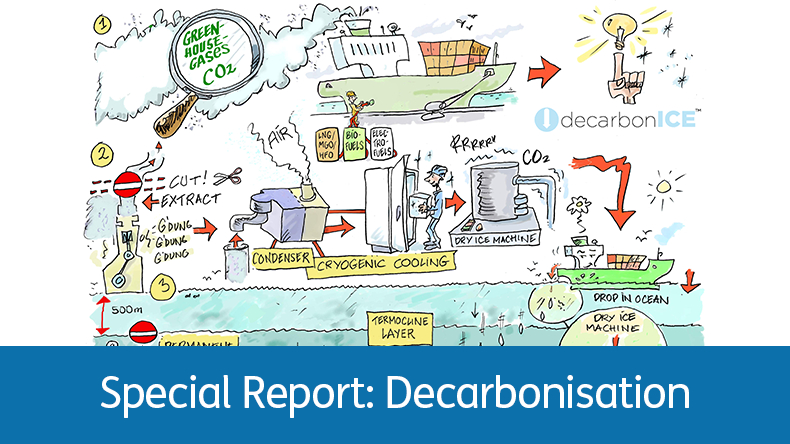
Special report: Decarbonisation
Decarbonisation remains the number one item on the industry’s mid-term agenda and will colour all significant investment and strategic thinking in the years ahead. Halving shipping’s emissions by 2050 requires investment in excess of $1.4trn and the timeline requires zero-emission vessels to become a viable commercial, safe and scaleable reality in the 2020s. This report addresses the immediate and long-term challenges that lie in wait as shipping navigates its way towards a carbon-free future.

New efficiency measures will not radically change shipping
The majority of the global fleet is, however, going to have to take action to comply with incoming regulations, with engine power limitations looking likely to be the most widely used tool
.jpg?rev=edd2944360b84461961a7bd631c71c81&hash=C9F5F89FAA96FBA641BCB1EAB172163A)

Shipping has seven months to show decarbonisation progress
COP26 in Glasgow may judge kindly what shipping has been able to achieve since the 2015 Paris Agreement. Mounting pressure on governments to accelerate decarbonisation action means the sector should be ready too for stricter demands in the fallout

Waiting on the carbon offset boom
With the global voluntary carbon market set to grow exponentially in the coming years, what role will it have on shipping’s pursuit of net-zero emissions?

Ammonia: The trillion-dollar question
Ammonia is gaining traction as one of the most viable zero-carbon fuels for international shipping. Even so, the transition appears insurmountable: the technology is unproven, fuel availability is uncertain, and trillions of dollars need to be invested just to get to the commercial starting line

Accounting for carbon consumption
Container lines are feeling the pressure to reduce carbon emissions from both regulators and their own customers; but there are concerns that just showing the emissions per teu on a particular port pairing is nowhere near the transparency required

Black carbon offers shipping a chance to clean up the Arctic and its reputation
Black carbon pollution in the Arctic makes up a growing share of shipping’s contribution to climate change. Regulation is still far off, despite a decade of lobbying. But tackling black carbon offers shipping a relatively easy way to make a meaningful difference — and to be seen to do so

Is carbon capture the solution shipping has been waiting for?
Several solutions are being worked on; one of which proposes to thrust frozen carbon blocks into seabed sediments, while another aims to capture carbon through the exhaust and then be used to make fertiliser

Yard Talk | Build-and-scrap subsidy for green ships? Perhaps not
Industry expert suggests China should first create a road map from the top that carefully assesses the feasibility of different fuel options and design a suitable pathway towards green shipping

Maersk Tankers touts benefits of scale in decarbonisation efforts
Smaller owners that may struggle to reduce carbon emissions on their own can achieve considerable savings by joining a pool in which ships are deployed more efficiently, with fewer ballast voyages, but Maersk Tankers' Ingerslev insists this is not a first step towards consolidation in the product tanker trades
You must sign in to use this functionality
Authentication.SignIn.HeadSignInHeader
Email Article
All set! This article has been sent to my@email.address.
All fields are required. For multiple recipients, separate email addresses with a semicolon.
Please Note: Only individuals with an active subscription will be able to access the full article. All other readers will be directed to the abstract and would need to subscribe.

